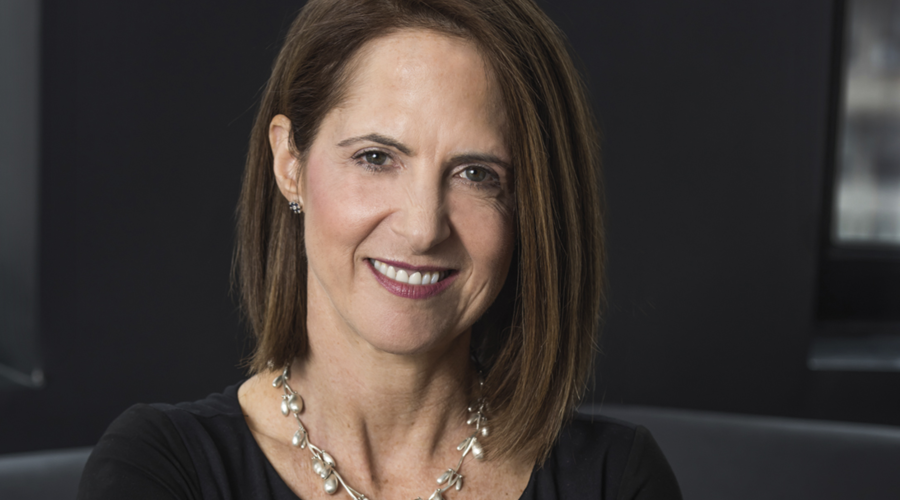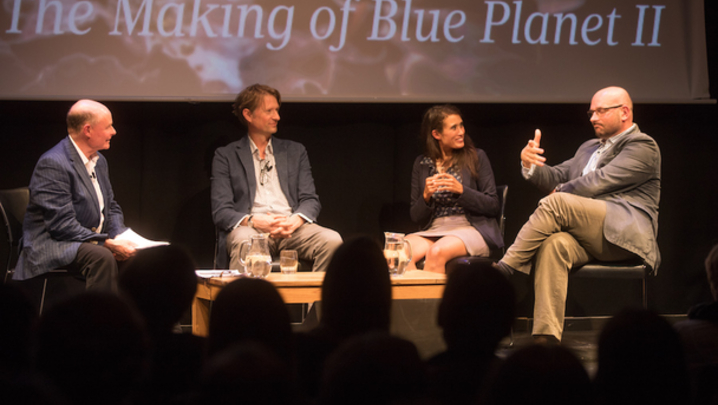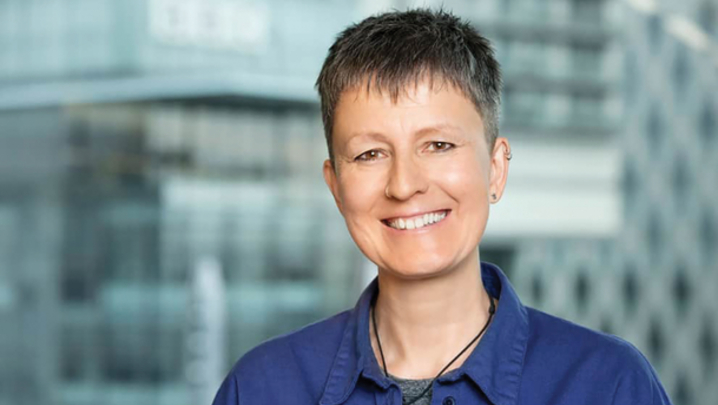Lynn Novick, co-director of The Vietnam War, convinces Steve Clarke that documentary can be more dynamic than drama
Can something as apparently ephemeral as a TV programme be genuinely cathartic and help to bring a measure of healing, perhaps even closure, to a national tragedy? That was the hope behind the making of The Vietnam War, the acclaimed documentary made by Ken Burns and his long-time collaborator Lynn Novick.
Last month, PBS America began showing the 18-hour directors’ cut in the UK. This followed the British premiere of the 10-hour version by BBC Four last autumn and its repeat over Christmas.
This epic production, using the film-makers’ trademark vocabulary of still photographs, archive clips and carefully juxtaposed interviews, was included on several TV critics’ lists of 2017’s best programmes. The Daily Telegraph described the series as “a massive triumph”. A Bafta nomination was announced in April.
“We’re in the realm of tragedy and, I hope, catharsis. We use the word catharsis a lot”
When the first episode of The Vietnam War made its debut in the US last autumn, almost 12 million people watched. The aggregated US figure for the full 10 episodes was 40 million. The DVD version has topped Amazon best-seller lists in the US, the UK and Europe.
But catharsis? Who knows? It’s a big ask, as Lynn Novick is only too well aware. “We’re in the realm of tragedy and, I hope, catharsis. We use the word catharsis a lot,” she says. “I am not sure I can give the proper definition but, from what I understand, there’s a sense that you have to be immersed in the experience and feel these feelings authentically to have a true catharsis.
“There’s something very cleansing about that if it’s done properly. The Greeks figured that out.… I don’t think we were consciously looking for that, but, if you create a work of art that allows people that opportunity, it’s powerful and profound. Ultimately, we were hoping that is what would happen.”
The film is not the first and, almost certainly, won’t be the last, to trace the grim trajectory of the Vietnam war. But it does feel definitive by virtue of its painstaking authority.
What is unusual about this retelling of the history is that it includes Vietnamese perspectives – from both North and South Vietnam – as well as the more conventional testimonies drawn from American combatants, their relatives, politicians and civil servants. And, at a time when fake news is rife and the media seemingly becoming more subjective, The Vietnam War brings a cool-headed objectivity to the full sweep of the disastrous story of US involvement in an Asian war.
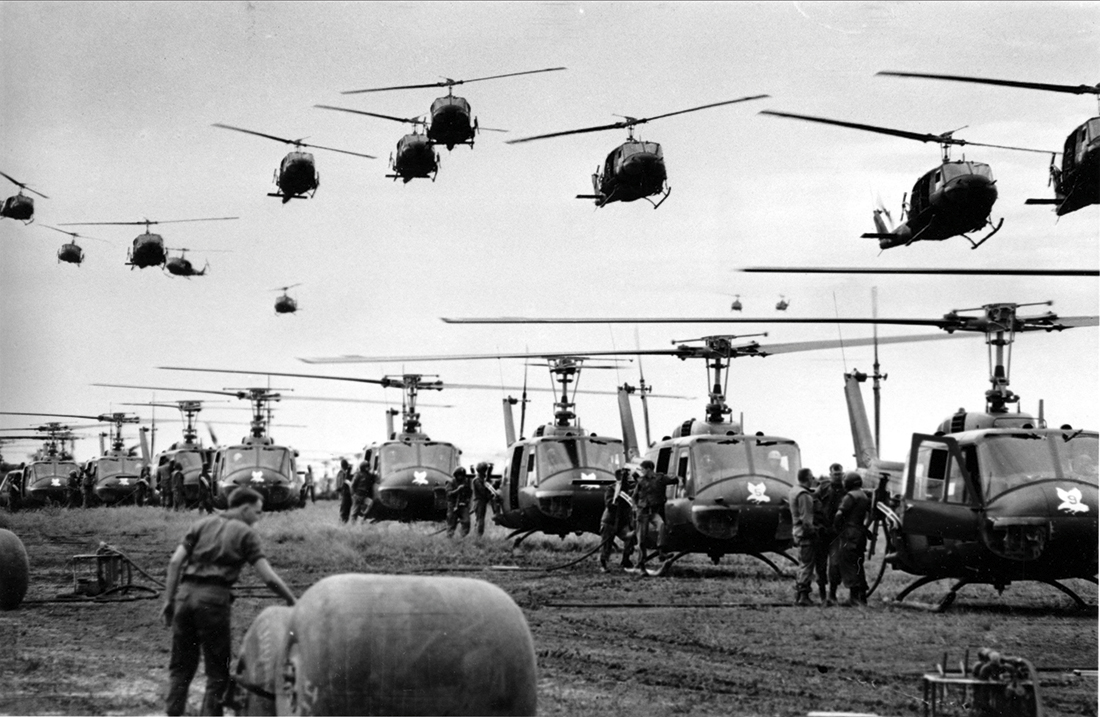
Stepped up by John F Kennedy and further escalated by Lyndon Johnson, American entanglement in Vietnam became a byword by the late 1960s for what liberals identified as Western imperialist folly.
“I don’t want to be pigeonholed as pro-war or anti-war...it’s a deeper question than that"
“Our hope was that, in laying out the facts as best we could determine them, people could draw their own conclusions,” says Novick. “I, personally, entered the process thinking that I knew a lot about the Vietnam war and found out how little I knew.”
After working on the film off and on for more than a decade (production finally started in 2011 after the decision was taken to make the show in 2007), she became overwhelmed by the tragedy of Vietnam: the loss of life on all sides, the country’s devastation and the lies and obfuscations of America’s political leaders.
“I don’t want to be pigeonholed as pro-war or anti-war,” she insists. “It’s a deeper question than that. But I do think that we, as human beings, are obligated to understand what war really is and what it does to people.”
We are sitting in a smart London hotel. The documentary-maker is here for a round of promotional interviews. Despite it being midday, she wears a black cocktail dress. She fiddles restlessly with her necklace, talks like she’s drunk too many espressos and fizzes with intellectual energy.
"We’ll never be fully equal in terms of stature, and that’s appropriate, but I think gender does play a role."
Novick has worked alongside the celebrated Ken Burns since 1989, first as an associate producer, then producer, and, for 20 years, as his co-director on such series as Frank Lloyd Wright, The War (chronicling America’s experience in the Second World War) and Prohibition.
So, given the new focus on gender issues and that it is Burns who receives most of the credit for these stylish documentaries, does she feel somewhat marginalised? “I think it’s fair to say that, during the many years we’ve worked together, the spotlight has been mostly on him. It’s partly due to gender and partly due to his success before I came to work for him.”
She joined Burns’s company, Florentine Films, in 1989, a year before The Civil War (about America’s civil war) made its debut. The success of that seven-part series brought Burns celebrity status in the US, where he subsequently became a prominent public intellectual.
“He’s gotten bigger and bigger over time as more work has come out,” she suggests. “I think it’s difficult for the media to see us as an equal partnership.… We’ll never be fully equal in terms of stature, and that’s appropriate, but I think gender does play a role. “I don’t think I was aware of this until all this stuff came out,” Novick adds, referring to the #metoo campaign prompted by the allegations of sexual misconduct by Harvey Weinstein and other male show-business executives.
She continues: “Do I think it would be different if I were a man? I don’t think I would have articulated that until about a year ago… I’ve never experienced sexual harassment or any of the horrible things that we’ve seen, but I definitely have.… Looking back, I do think there is a marginalisation partly because of my gender.”
Does she think this has impacted on her career? “Well, I think it’s affected the lack of recognition. My career in terms of working with Ken has been fantastic. We have chosen to make films together and it’s been amazing.”
"You have to reveal a little of yourself, too. Who am I? What right do I have to ask these questions? Tell people who you are.”
She makes the point that, in the US documentary-making sphere, there are many women working in influential positions. PBS – for which she and Burns have made all their films – is run by Paula Kerger, CEO for more than a decade.
However, at the recent Directors Guild of America Awards (where The Vietnam War failed to win) all the other documentary-makers were male. “It’s a fact that men get more recognition,” Novick says.
She explains that, in her own career, “I have generally kept my head down and done work that I consider important”, rather than worry about any kudos that might come her way. “I’ll keep doing that. It’s what gets me out of bed in the morning.” Winning recognition is not a motivating factor. Her work is, in itself, fulfilling, challenging and all-consuming. “It’s what I love to do,” she states.
There is a caveat. In future, she thinks she will be more aware of the need to “advocate for one’s self than I was before”.
In any case, despite Burns’s celebrity, film-making is an inherently collaborative process. Novick’s description of the culture at Florentine makes it sound democratic: “It’s a very open process, where a lot of people chime in. What we try and do is create a space, particularly in the edit room, where no one is afraid to say anything, certainly no one shoots down an idea because it’s not theirs. Sometimes, our best ideas come from our interns.”
Significantly, for the first time, one of her new projects gives her lead billing over Burns. On the series, provisionally entitled College Behind Bars, she is the sole director, while Burns is an executive producer. The film aims to tell the story of how some inmates of the overburdened and troubled US prison system use the experience of being incarcerated to gain an education.
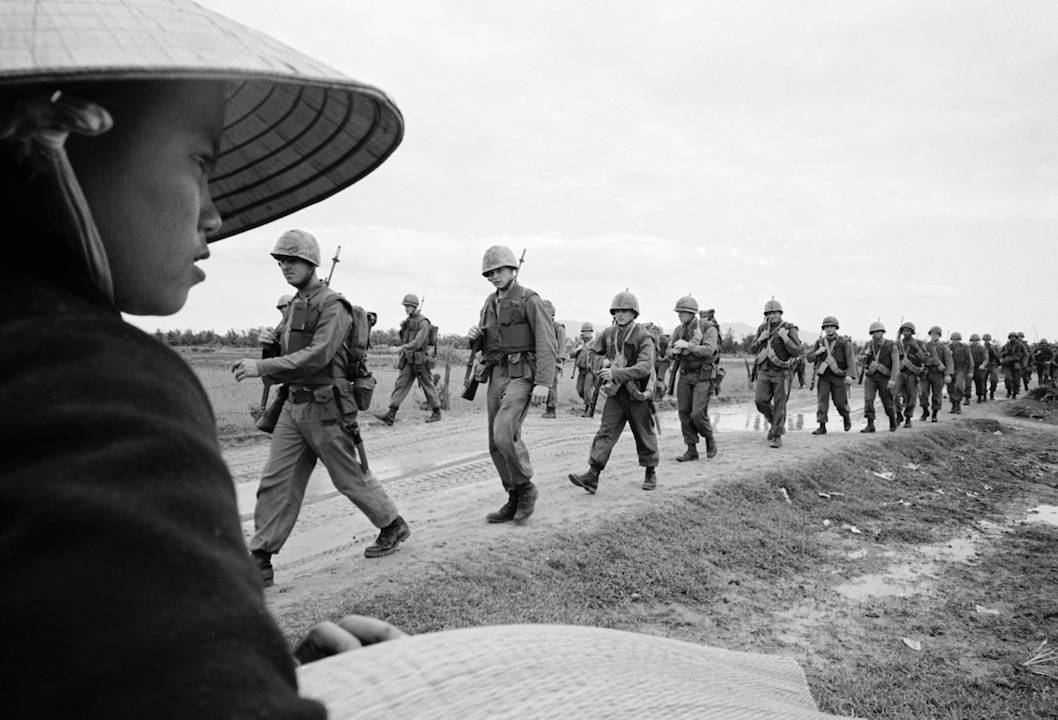
In common with all her films, College Behind Bars will feature exacting and meticulous interviews conducted with the protagonists.
Her ability to empathise with her subjects, and to develop relationships with them before their formal interviews with the camera rolling, has been remarked upon. What are the traits of a good interviewer? “Trust and be present. Listening without judgement. Whatever you might be feeling about what someone is telling you, try not to reveal that.
“Really, really listen and create a space where people can reveal themselves. Doing your homework is also important. You have to reveal a little of yourself, too. Who am I? What right do I have to ask these questions? Tell people who you are.”
Her own journey towards the partnership with Burns began in the 1980s, when she was considering whether she wanted to work in TV journalism or as a documentarian. She graduated from Yale in 1983 with a major in American Studies.
Novick’s family mainly worked on the science side of things – as doctors, psychologists, “all the other side of the brain”. They were, therefore, perplexed at her wanting to find employment in the media. In fact, she recounts, “I did start on a pre-medical track, but then decided I wanted to do humanities. To be honest, I didn’t have a plan, so I floundered around for a bit.”
The breakthrough came when she realised that storytelling and making history more accessible through film appealed to her. She recalls being moved by two TV series that engaged with the history of the US: “In the early 1980s, I saw a PBS film, Vietnam: A Television History, and remember thinking, ‘Wow, that’s really powerful – this is a history I don’t know and it’s jumping off the screen’. Also, there was Eyes on the Prize, about the history of the civil rights movement. I recall thinking that this is reaching me in a way that the books I’d read didn’t. There is something about a story told on TV or film that is so immediate.”
As is usual for her work, the funding for The Vietnam War came from individual and corporate sponsors. Since the 2007-08 financial crisis, obtaining backing has become tougher. “So, over the past 10 years, Ken and I have been finding individuals,” she explains.
“A lot of people say to us: ‘People’s attention spans are shorter than ever nowadays. Who’s going to watch 18 hours?’
“With our income-inequality problem, a lot of wealth has been sucked up into the 0.1%. There are a lot of people from a variety of political stripes who are interested in what we do. We’ve been able to find many of them and that has been very helpful – but it is difficult.”
Once the money is handed over, the donors have zero influence on the content of her shows. “It’s a good investment. Our funders are pretty happy, to be honest.”
A film of the weight and authority of The Vietnam War could not be further removed from the instant gratification of click-bait culture. This, she argues, is one reason why serious documentaries are back in vogue.
Novick is sceptical that the streaming services’ investment in high-end documentary will last. The film-maker reasons that the likes of Netflix and Amazon want to establish global brands, rather than show one-off films.
“Once they’ve established these brands, they will retrench and stop funding documentaries. I hope not, but I think it’s very possible.” Her own viewing habits include British costume drama, such as Downton Abbey and Victoria, and The Daily Show.
In an era when so much attention and money is devoted to TV drama, it is perhaps salutary to note that the entire budget for The Vietnam War was $29m, including the educational outreach initiatives attached to the project. Imagine what 18 hours of drama might cost in today’s climate of ballooning drama budgets.
But will audiences watch the directors’ cut in its entirety? “A lot of people say to us: ‘People’s attention spans are shorter than ever nowadays. Who’s going to watch 18 hours?’"
“We feel there is an appetite for immersion in a long-form story, whether it’s scripted or non-fiction. It’s something you spend time on, be it Mad Men, The Sopranos, Victoria or The Vietnam War. The work that we do has added appeal, because it really happened.”

